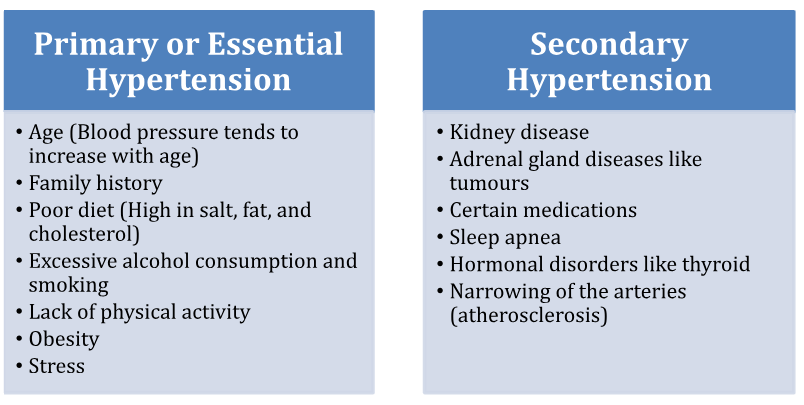
High blood pressure or hypertension is a prevalent circulatory system disease. Heart disease and a number of other serious medical disorders typically arise from hypertension. This medical condition often goes unnoticed since it rarely presents symptoms. Consequently, many individuals remain unaware of their condition. On the bright side, hypertension can be aptly managed through a personalised treatment plan.
Synopsis
Understanding High Blood Pressure
High blood pressure is a serious condition in which arterial blood pressure is higher than usual. It is a primary cause of premature death worldwide. If you have hypertension, you must consult a doctor for personalised treatment.
Causes of High Blood Pressure
Hypertension can be either primary or essential hypertension or secondary hypertension. Primary hypertension accounts for 90-95% of adult cases, while secondary hypertension (occurs due to other medical conditions) can be found in 2-10% of adult cases. Factors that can contribute to primary or essential hypertension and secondary hypertension are:

Signs and Symptoms of High Blood Pressure
Hypertension is often referred to as the “silent killer” because it triggers no warning signs during its early stages. However, patients may experience some hypertension symptoms with time like:
- Headaches
- Shortness of breath
- Nosebleeds
- Dizziness
- Vision problems
If you start experiencing any of these signs, contact your doctor right away.
How to Control High Blood Pressure?
Treatment for high blood pressure is influenced by the severity of the medical condition and the possibility of having underlying conditions.
Medication: The first and most important step in regulating your blood pressure is to take your medications as directed. There are several medications available to manage high blood pressure. Your doctor may customise the treatment to meet your requirements. When choosing a medication, your doctor carefully explores any potential underlying medical conditions.
Diet: People who follow a heart-healthy diet can keep their blood pressure under control. High salt consumption increases hypertension. The primary dietary source of sodium is salt. People with high blood pressure should consume less salt to help stabilise their condition. Following a DASH (Dietary Approaches to Stop Hypertension) diet is a great option for hypertensive individuals.
Inadequate Physical Activity: The chances of high blood pressure increase with weight gain. Inactive individuals also typically have faster heart rates. Regular exercise can make a big difference.
Stop Smoking: Smoking is also associated with raising blood pressure which is mostly due to the adverse effects of nicotine. Giving up smoking not only reduces blood pressure but also enhances general health and lowers the risk of heart disease and many other serious health problems.
Poor Sleep: Poor quality sleep is another predominant factor in high blood pressure. Ensure you get about 7-9 hours of sleep. The hormones the body needs to control stress and metabolism are strengthened by sleep. Inadequate sleep may cause hormonal fluctuations, which can lead to hypertension along with other cardiovascular problems.
Stress: Chronic stress conditions may also elevate blood pressure conditions. When we suffer from anxiety, our bodies release hormones that trigger the heart to beat quicker, leading to frequent blood pressure increases. You should control your stress by leading a healthy lifestyle, developing emotional strength, and exercising on a daily basis.
Maintaining blood pressure control is essential to avert major health issues. Adopt a healthy diet, control stress, and pay attention to your doctor's recommendations. Remember that even small adjustments may have a significant impact.
FAQ's
Normal blood pressure levels by age:
- Adolescents (14–18 years): 90–120/50–80
- Adult (19–40 years): 95–135/60–80
- Adults (41–60 years): 110–145/70–90
- Older adults (61 and older): 95–145/70–90
Fruits, vegetables, dairy products with little fat, etc., can help stabilise blood pressure.
Employ these simple strategies to cut back on your blood pressure.
- Shed excess pounds
- Engage in regular exercise
- Consume a balanced diet
- Cut back on sodium, or salt, in your diet
- Limit your alcohol intake



















 3 Min Read
3 Min Read

















